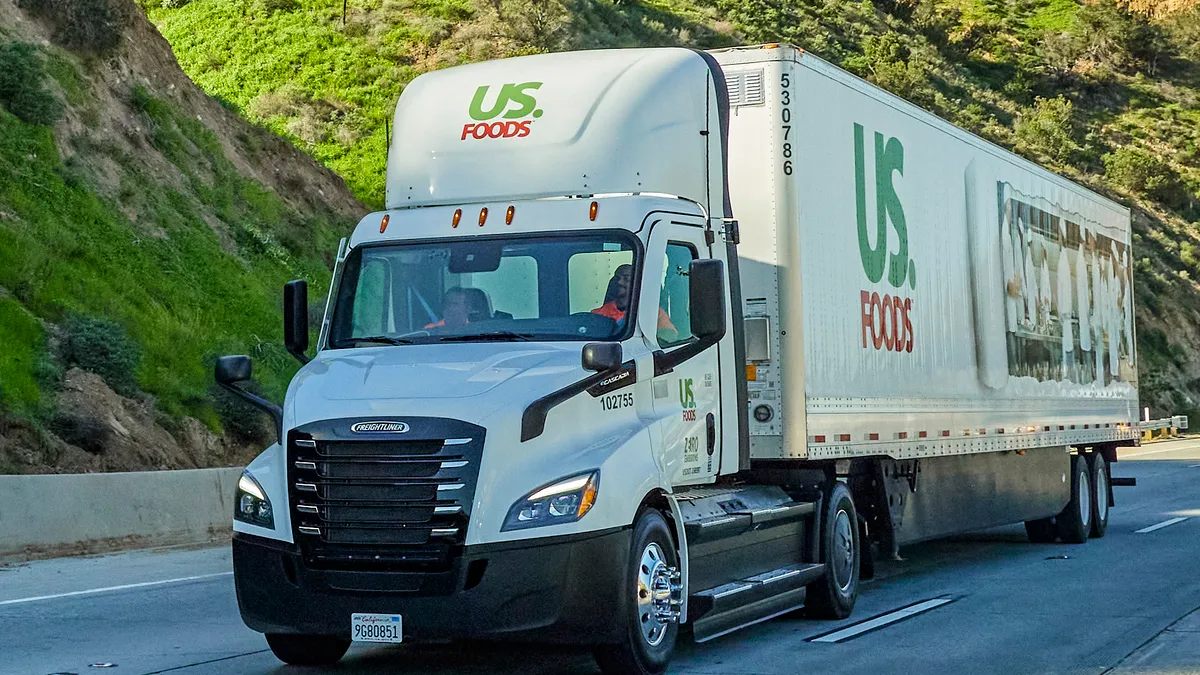Dive Brief:
- US Foods reported a 2% YoY volume increase through initiatives to improve its supply chain and boost operational efficiencies, executives said during the reefer carrier’s February earnings call.
- The company’s volume gains have come through bolstering employee retention, and it has launched a pilot program offering flexible work schedules and seven-day delivery.
- The company is confident in its approach. “So far in 2023, we are continuing to see volume improvement over the prior year and have not seen signs of softening demand,” CFO Dirk Locascio said during the call.
Dive Insight:
US Foods began shaping its long-term plan to find operational efficiencies in 2021. The strategy focuses on growing market share and revenue, gross margin expansion and cost reduction, the company revealed in April 2022.
Dave Flitman, took over as CEO Jan. 5. He previously served as CEO of Builders FirstSource before joining US Foods and was selected by the company because of his past accomplishments.
“Dave is a highly accomplished executive who brings an impressive combination of CEO, supply chain and commercial experience and a proven track record of driving operational excellence, profitable growth, shareholder returns and a people-centric, high-performing culture,” Bob Dutkowsky, board chairman of US Foods, said in a press release announcing Flitman’s appointment.
Flitman has visited company locations, including an undisclosed site in the Southeast where US Foods has piloted seven-day delivery and flexible schedules. During the company’s Q4 earnings call, Flitman said both initiatives had potential to drive efficiency and reduce turnover across the company.
US Foods reported $1.3 billion in operating expenses, a YoY increase of $153 million or 13.8%. The company blamed higher distribution costs, which factored in more expensive labor due to increased turnover and higher-than-normal wage inflation.
The company’s flexible scheduling pilot program targets employees who support customer deliveries, a US Foods spokesperson said in an email to Transport Dive. It offers a three-to-five-day work week, which has been favorably received by employees because of the opportunities for improved work-life balance.
The company recently expanded the flexible scheduling program to two other undisclosed markets.
Seven-day delivery programs also were launched to accommodate flexible scheduling, an initiative the company believes provides more opportunities to deliver deliver goods during times that customers prefer.
During the company’s Q3 earnings call, Andrew Iacobucci, chief transition officer who served as interim CEO at the time, said both programs gave the company something to build upon.
“(A)s we mentioned earlier, a seven-day work week, which has, we think, some really important benefits from a select or turnover standpoint, but we also think there's an opportunity by spreading some of the volume across the week of creating a much better service experience for our customers as well, which is why we're very optimistic about what that could bring,” Iacobucci said during the November earnings call.












